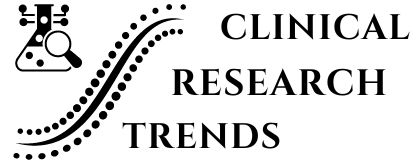The Role of Regulatory Affairs in Clinical Research
In the intricate landscape of clinical research, the role of regulatory affairs is pivotal. Regulatory affairs encompass the legal and administrative tasks required to ensure that research activities comply with relevant laws and guidelines. These activities are essential for protecting patient safety, ensuring data integrity, and facilitating the approval and dissemination of new therapies and medical products. This blog aims to provide a comprehensive overview of the role of regulatory affairs in clinical research, examining the frameworks that govern this field, the responsibilities of regulatory professionals, the challenges they face, technological advancements, and the future directions of this critical discipline.
Regulatory Frameworks
Overview of International Guidelines
Regulatory affairs in clinical research are guided by a complex web of international and national regulations designed to safeguard public health and ensure the ethical conduct of research. Among the most influential international guidelines are those established by the U.S. Food and Drug Administration (FDA) and the European Medicines Agency (EMA). The FDA's regulations are codified in the Code of Federal Regulations (CFR), which includes specific parts related to clinical trials, such as Good Clinical Practice (GCP) guidelines. These guidelines ensure that trials are conducted ethically, that data is collected accurately, and that the rights and safety of participants are protected.
Similarly, the EMA, which oversees medicinal products in the European Union, provides comprehensive guidelines that align with the International Council for Harmonisation of Technical Requirements for Pharmaceuticals for Human Use (ICH) standards. The ICH GCP guidelines harmonize technical and regulatory requirements for pharmaceutical research across different countries, promoting a unified approach to clinical trials and drug development. These international frameworks are essential for facilitating global clinical trials and ensuring that data is acceptable to regulatory authorities worldwide.
National Regulations and Compliance
While international guidelines provide a foundational framework, each country has its own set of regulations that must be adhered to in clinical research. For instance, in the United States, the FDA enforces regulations that govern clinical trials, including requirements for Investigational New Drug (IND) applications, Institutional Review Boards (IRBs), and adverse event reporting. In the European Union, the Clinical Trials Regulation (CTR) governs the authorization and conduct of clinical trials, with the EMA playing a central role in the coordination and oversight of these activities.
Compliance with national regulations is crucial, as failure to adhere to these standards can result in significant legal and financial penalties, including the suspension of clinical trials, fines, and damage to an organization's reputation. Regulatory affairs professionals must therefore be well-versed in the specific requirements of each jurisdiction in which they operate, ensuring that all aspects of a clinical trial, from study design to data reporting, meet the necessary regulatory standards.
Impact on Clinical Research
The regulatory frameworks governing clinical research have a profound impact on the conduct and outcome of clinical trials. These regulations ensure that studies are designed and conducted in a manner that protects participants' rights and safety, generates reliable and accurate data, and supports the ethical conduct of research. By providing clear guidelines for study protocols, informed consent, data management, and adverse event reporting, regulatory frameworks help to standardize clinical research practices, facilitating the comparison and interpretation of study results.
Moreover, regulatory compliance is essential for the approval and market access of new therapies and medical products. Regulatory agencies review clinical trial data to assess the safety and efficacy of investigational products, determining whether they should be approved for public use. This process is crucial for ensuring that only safe and effective treatments reach the market, protecting public health and fostering trust in the healthcare system.
Roles and Responsibilities
Ensuring Compliance with Regulations
One of the primary responsibilities of regulatory affairs professionals in clinical research is to ensure compliance with all relevant regulations and guidelines. This involves a thorough understanding of the regulatory landscape, including the requirements of regulatory agencies such as the FDA, EMA, and national authorities. Regulatory professionals work closely with researchers and study sponsors to ensure that all aspects of a clinical trial, from protocol development to data reporting, adhere to the required standards.
This compliance oversight includes ensuring that study protocols are designed in accordance with regulatory requirements, that informed consent is obtained from all participants, and that any adverse events are promptly reported to the appropriate authorities. Regulatory professionals also ensure that data is collected, managed, and reported in a manner that meets regulatory standards, facilitating the accurate and reliable interpretation of study results.
Liaison Between Researchers and Regulatory Bodies
Regulatory affairs professionals serve as a critical liaison between researchers, study sponsors, and regulatory bodies. They facilitate communication and coordination between these parties, ensuring that regulatory requirements are clearly understood and adhered to throughout the clinical trial process. This involves preparing and submitting regulatory documents, coordinating inspections and audits, and providing guidance on regulatory matters.
In addition to facilitating communication with regulatory agencies, regulatory professionals also work closely with other stakeholders, including ethics committees, IRBs, and clinical trial sites. They provide guidance on regulatory requirements, help to resolve issues that arise during the trial, and ensure that all parties are aligned with the study's objectives and regulatory obligations.
Preparing and Submitting Regulatory Documents
The preparation and submission of regulatory documents is a core function of regulatory affairs in clinical research. This includes the preparation of IND applications, clinical trial applications (CTAs), marketing authorization applications (MAAs), and other regulatory submissions required by regulatory agencies. These documents provide detailed information about the investigational product, the study protocol, and the safety and efficacy data generated during the trial.
Regulatory professionals are responsible for ensuring that these documents are accurate, complete, and submitted in a timely manner. They work closely with other members of the research team, including clinical scientists, statisticians, and medical writers, to gather the necessary data and prepare the required documentation. This process involves a thorough review of the data to ensure its accuracy and compliance with regulatory requirements, as well as coordination with regulatory agencies to address any questions or concerns that may arise during the review process.
Challenges in Regulatory Affairs
Navigating Complex Regulatory Requirements
One of the most significant challenges in regulatory affairs is navigating the complex and often-changing regulatory landscape. Clinical research is governed by a myriad of regulations and guidelines, which can vary significantly between countries and regions. Regulatory professionals must be adept at interpreting these requirements and ensuring that all aspects of a clinical trial are in compliance.
This complexity is compounded by the fact that regulations are continually evolving. Changes in regulatory requirements can occur due to new scientific discoveries, changes in public health priorities, or shifts in regulatory policy. Regulatory professionals must stay up-to-date with these changes and ensure that their organizations are prepared to adapt to new requirements. This often involves ongoing training and professional development, as well as close collaboration with regulatory agencies and industry associations.
Keeping Up with Evolving Guidelines
The rapid pace of scientific and technological advancements in the field of clinical research presents another significant challenge for regulatory affairs professionals. New technologies, such as digital health tools, personalized medicine, and advanced therapeutic products, are continually emerging, and regulatory frameworks must evolve to keep pace with these innovations.
Regulatory professionals must be proactive in understanding these new technologies and the implications they have for regulatory compliance. This may involve working with regulatory agencies to develop new guidelines or interpret existing regulations in the context of new scientific developments. It also requires staying informed about emerging trends and best practices in the industry, as well as engaging with industry stakeholders to share knowledge and insights.
Balancing Regulatory Compliance with Research Innovation
Balancing regulatory compliance with the need for research innovation is a perennial challenge in clinical research. On the one hand, regulatory frameworks are essential for ensuring the safety and efficacy of new therapies and medical products. On the other hand, overly stringent or inflexible regulations can stifle innovation and delay the development of new treatments.
Regulatory affairs professionals play a crucial role in finding this balance. They work with researchers and study sponsors to develop innovative study designs and methodologies that meet regulatory requirements while also advancing scientific knowledge. This often involves working with regulatory agencies to explore new regulatory pathways or frameworks that can support innovation, such as accelerated approval processes or adaptive trial designs.
Technological Solutions
Digital Platforms for Regulatory Submissions
The digital transformation of the regulatory landscape has introduced new tools and platforms that streamline the process of regulatory submissions. Digital platforms enable the electronic submission of regulatory documents, improving efficiency and reducing the administrative burden on regulatory affairs professionals. These platforms often include features for document management, data validation, and communication with regulatory agencies, facilitating a more streamlined and transparent submission process.
In addition to improving efficiency, digital platforms also enhance the accuracy and reliability of regulatory submissions. They provide tools for data validation and quality control, ensuring that submitted data is complete, accurate, and compliant with regulatory requirements. This can reduce the likelihood of delays or rejections during the review process, helping to accelerate the approval of new therapies and medical products.
Blockchain for Secure and Transparent Documentation
Blockchain technology offers a promising solution for enhancing the security and transparency of regulatory documentation in clinical research. Blockchain is a decentralized and immutable ledger that records transactions in a secure and transparent manner. In the context of regulatory affairs, blockchain can be used to securely store and manage regulatory documents, such as informed consent forms, clinical trial protocols, and adverse event reports.
The use of blockchain technology can enhance the transparency and traceability of regulatory documentation, providing a clear and auditable record of all transactions. This can be particularly valuable in the context of multi-site clinical trials, where it is essential to ensure that all sites are adhering to the same protocols and standards. Blockchain can also help to protect the integrity of sensitive data, reducing the risk of data tampering or unauthorized access.
Data Analytics for Compliance Monitoring
Data analytics is another technological innovation that is transforming the field of regulatory affairs. Advanced analytics tools enable the real-time monitoring and analysis of data generated during clinical trials, providing valuable insights into study performance and compliance. These tools can be used to track key metrics, such as enrollment rates, data quality, and adverse event reporting, helping regulatory professionals to identify and address potential issues before they escalate.
Data analytics can also support risk-based monitoring approaches, allowing regulatory professionals to focus their resources on areas of greatest risk. This can improve the efficiency and effectiveness of compliance monitoring, ensuring that regulatory requirements are met while also supporting the timely and cost-effective conduct of clinical trials.
Case Studies and Examples
Successful Regulatory Strategies in Clinical Trials
There are numerous examples of successful regulatory strategies that have facilitated the approval and market access of new therapies and medical products. One notable example is the accelerated approval pathway offered by the FDA, which allows for the expedited review and approval of drugs that address unmet medical needs. This pathway has been successfully used to bring innovative treatments to market more quickly, providing patients with earlier access to potentially life-saving therapies.
Another example is the use of adaptive trial designs, which allow for modifications to the study protocol based on interim data. This approach can improve the efficiency and flexibility of clinical trials, allowing for faster and more accurate decision-making. Regulatory professionals play a key role in designing and implementing these adaptive designs, ensuring that they meet regulatory requirements while also advancing the scientific objectives of the study.
Lessons Learned and Best Practices
Successful regulatory strategies often involve a combination of thorough planning, proactive communication, and a deep understanding of the regulatory landscape. One key lesson learned from successful case studies is the importance of early and ongoing engagement with regulatory agencies. This engagement can help to clarify regulatory requirements, address potential issues, and build trust and collaboration with regulators.
Another best practice is the use of robust quality management systems to ensure the accuracy and reliability of data. This includes rigorous data validation and quality control processes, as well as the use of advanced analytics tools to monitor study performance and compliance. By ensuring that all data is accurate and complete, regulatory professionals can support the timely and successful approval of new therapies and medical products.
Impact on Research Outcomes
Effective regulatory strategies can have a significant impact on the outcomes of clinical research. By ensuring that studies are conducted in compliance with regulatory requirements, regulatory professionals help to protect participant safety, ensure data integrity, and support the ethical conduct of research. This, in turn, can enhance the credibility and reliability of study results, facilitating the approval and dissemination of new therapies and medical products.
In addition, effective regulatory strategies can support the timely and cost-effective conduct of clinical trials. By streamlining the regulatory submission process, improving compliance monitoring, and facilitating the use of innovative study designs, regulatory professionals can help to accelerate the development and approval of new treatments, ultimately benefiting patients and advancing public health.
Notable Labs: The Role of Regulatory Affairs in Clinical Research
Regulatory affairs are crucial in clinical research, encompassing the legal and administrative tasks that ensure compliance with laws and guidelines. These activities protect patient safety, ensure data integrity, and facilitate the approval and dissemination of new therapies and medical products.
Key regulatory frameworks include guidelines from the FDA and EMA, which provide standards for conducting ethical and accurate clinical trials. Compliance with these regulations is vital, as failure to do so can result in significant penalties and delays in bringing new treatments to market.
Regulatory professionals play a pivotal role in ensuring compliance, acting as liaisons between researchers, sponsors, and regulatory bodies. They are responsible for preparing and submitting necessary documents, managing communications, and ensuring that all study protocols meet regulatory standards.
The field faces challenges such as navigating complex and evolving regulations, balancing compliance with innovation, and keeping pace with scientific advancements. However, technological solutions like digital submission platforms, blockchain for secure documentation, and data analytics for compliance monitoring are enhancing efficiency and transparency.
Successful regulatory strategies can accelerate the approval of new therapies, as seen with the FDA's accelerated approval pathways and adaptive trial designs. The future of regulatory affairs will likely involve more real-world data use, patient-centered research, and integration of AI and machine learning to improve decision-making and efficiency.
In conclusion, regulatory affairs are essential for advancing clinical research and public health, ensuring that new medical products are safe, effective, and compliant with regulatory standards. As the field evolves, regulatory professionals will continue to play a critical role in navigating this complex landscape.
Future Directions and Innovations
Emerging Trends in Regulatory Affairs
The field of regulatory affairs is continually evolving, with new trends and innovations shaping the future of clinical research. One emerging trend is the increasing use of real-world data (RWD) and real-world evidence (RWE) in regulatory decision-making. RWD and RWE refer to data collected outside of traditional clinical trials, such as data from electronic health records, patient registries, and other sources. Regulatory agencies are increasingly recognizing the value of this data in assessing the safety and efficacy of new therapies, and regulatory professionals must be prepared to navigate the regulatory requirements associated with its use.
Another emerging trend is the growing emphasis on patient-centered research and patient engagement. Regulatory agencies are increasingly encouraging the involvement of patients in the design and conduct of clinical trials, as well as in the review and approval of new therapies. This shift toward patient-centered research requires regulatory professionals to develop new skills and competencies, including the ability to engage with patients and incorporate their perspectives into regulatory decision-making.
Integration with Artificial Intelligence and Machine Learning
Artificial intelligence (AI) and machine learning (ML) are also poised to play a transformative role in regulatory affairs. These technologies have the potential to revolutionize the way regulatory professionals analyze data, identify trends, and make decisions. For example, AI and ML algorithms can be used to analyze large datasets, identify patterns and trends, and predict potential safety and efficacy issues. This can help regulatory professionals to make more informed and data-driven decisions, improving the efficiency and effectiveness of the regulatory process.
AI and ML can also support the automation of regulatory tasks, such as the preparation and submission of regulatory documents. By automating routine and repetitive tasks, these technologies can free up regulatory professionals to focus on more strategic and value-added activities. This can improve the overall efficiency and effectiveness of the regulatory process, helping to accelerate the development and approval of new therapies and medical products.
Vision for the Future of Regulatory Compliance
The future of regulatory compliance in clinical research is likely to be shaped by a combination of technological innovation, evolving regulatory frameworks, and a continued focus on patient-centered research. As new technologies and methodologies continue to emerge, regulatory professionals will need to stay at the forefront of these developments, continually updating their skills and knowledge to navigate the changing regulatory landscape.
In addition, the future of regulatory compliance is likely to be characterized by greater collaboration and transparency. Regulatory agencies, industry stakeholders, and patients are increasingly recognizing the value of collaboration in advancing public health and ensuring the safe and effective use of new therapies. Regulatory professionals will play a key role in facilitating this collaboration, working with stakeholders to develop new guidelines, share knowledge and best practices, and build trust and transparency in the regulatory process.
Conclusion
Regulatory affairs play a critical role in the conduct and success of clinical research, ensuring that studies are conducted in compliance with regulatory requirements and that new therapies and medical products are safe and effective. The field is continually evolving, with new technologies, methodologies, and regulatory frameworks shaping the future of regulatory compliance. As the landscape of clinical research continues to evolve, regulatory professionals will need to stay at the forefront of these developments, continually updating their skills and knowledge to navigate the changing regulatory landscape.
For researchers and study sponsors, the importance of regulatory affairs cannot be overstated. Compliance with regulatory requirements is essential for protecting participant safety, ensuring data integrity, and facilitating the approval and dissemination of new therapies. As such, researchers are encouraged to prioritize compliance and work closely with regulatory professionals to ensure the success of their clinical trials.
In conclusion, regulatory affairs is a dynamic and evolving field that plays a critical role in the advancement of clinical research and public health. As new technologies and methodologies continue to emerge, regulatory professionals will play a key role in shaping the future of regulatory compliance, ensuring that new therapies and medical products are safe, effective, and accessible to patients around the world.










